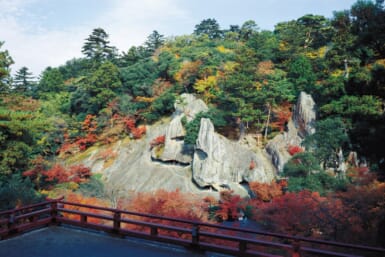I met a leader of the Japanese financial world here the other day. I prefer not to name the person, as our conversation was off-the-record, but just talking to him was fun.
I was reminded that there is, at this time, no regular channel for Japanese financial leaders to convey their views to the international press. This is unfortunate. The other point that arose had to do with small and medium enterprises (generally known as SMEs) in this country and their role in the economy.
Putting it briefly: there are millions of SMEs, dotted all over the big cities—and they are crucial. If they succeed, Japan will be OK. If they fail, God help the Japanese and all their works. Ergo, we need to know lots more about the SMEs—their names, their specialties and what their bosses do and say.
Let me take the first point first. A long time ago—it was in the 1960s—I set up a regular monthly press conference here. It was held at the Tokyo Stock Exchange. I was actually responsible for this. I was the FT staffer in the city at the time, and I wanted access to a senior spokesman for the securities industry.
Not to be mysterious about this, the man I got in touch with was Minoru Segawa. He was president of Nomura Securities and chairman of the Tokyo Stock Exchange. For six months we proceeded merrily with the monthly sessions in 1965. Then, all of a sudden, Mr. Segawa suspended the meetings. The WSJ had embarrassed him by publishing what he considered to be a mistaken quote stating that he expected a number of small and medium-sized brokers to merge.
Conditions in the market were very bad at the time. Stock prices were low, as they are now, and there were constant rumors of business failures—several brokerages were on the verge of collapse. The WSJ report hit a sensitive nerve. Mr. Segawa—normally a thick-skinned character—got into hot water, and he stopped meeting us altogether. The door just slammed shut; it was amazing.
Ever since, to my knowledge, there has been no regular monthly conference for the foreign press, given by a leader of the securities industry. From time to time, I and others set up such monthly sessions with leading bankers; one was with Shijuro Ogata who rose to the rank of deputy governor of the Bank of Japan in the 1980s. Another was with the late Yoh Kurosawa who rose to be president of the Industrial Bank of Japan in the 1990s.
However, today there is no regular press conference or briefing held here for the foreign press—neither by the embattled bankers nor by the securities industry. As to the bankers, that is OK; I think they have got to be re-nationalized and go back under the wing of the Ministry of Finance once more. But the brokers are another matter. They ought to be able to air their views.
I talk to these people, betimes. Hey, I say, you do realize that there is no “pipe” (the word is used in Japanese) between you guys and the outside world? Oh, yes, we know that very well, they respond. And then they sit and twiddle their thumbs, possibly for another 40 years. No one wants to “take responsibility,” as the saying goes.
As a result, the Japanese securities industry—including its investment banking arm—leaves the field to the Western competition. Listen, I have nothing against our chaps—the likes of Goldmans, Morgan Stanley and Merrill Lynch. Let them reap, while the sun shines—if it does. But their Japanese competitors do not need to just bury their heads under the sand. This is their country, too.
Mr. Segawa—I have kept this gripe to myself for nearly 40 years; I was so disappointed—need not have cut and run just because of some quote in the WSJ.
OK, let’s be cheerful about this. To re-create that ancient monthly press conference for the foreign financial press here, should not be too difficult. But, coming to my second point, getting to grips with the up-and-coming firms in Japan—those SMEs—needs work. I have written two rather perfunctory books in the field. One for Penguin in 1999 (100 Samurai Companies); the other for The Economist conferences division in 2001. I know where of I speak.
What is needed at this stage is for someone to fish in the pool where those SMEs swim—it is the Jasdaq market; and it is the bailiwick of Nomura Securities —and pull out 100 of the top-runners, using objective criteria, and go and report them (interview the CEOs), and post the results on the web, in an update-able form.
Could anything be simpler? Yes and no—this won’t happen without a budget. How much? Hm, we are looking at several tens of millions of yen per year—a fraction of the turnover of most of the 100 Samurai Companies I see before me today, but a very considerable sum in the present climate of cost-cutting.
Some canny investors—foreign brokers here—caution me on the whole project. The SMEs are not so vital, they claim, because they are difficult to buy into and sell in timely fashion—even if it is true that the future of Japan depends on them. So, at the end of the day, for investment purposes, it all boils down to the Toyotas, Hondas and Sonys—and their satellites. An analyst I met at Credit Lyonnais asked me this: Will any of those minnows ever become big?
My answer is that Toyota was a minnow—well within living memory. It was saved by the Korean War, and by giant order for trucks in the early 1950s. Honda was a minnow in autos, and how they laughed and sneered at the firm, when it produced its first pathetic little car, the N360, in the 1960s—the damned thing turned over in a cross-wind. Sony was a tiddler in its field, and they would have died in their first few years, as did most of their competitors, if it had not been for Akio Morita’s dad. He bankrolled them for years.
These stories are part of the very fabric of today’s business world in Japan. The future of this country, I say, depends on its SMEs—the new blood, the new people, the new ideas.
I love ’em, and let me say why. When you walk into one of those companies and meet the boss, you know from the word GO whether he’s got what it takes.
By contrast, try walking into big company X, Y or Z-—any of the first section horrors—and ask to see the corporate communications chiefs. Just try them. Ouch! They should all be switched, and their departments closed. It is the bosses who should deal with the hacks. That is the only way, Mr. Morita of Sony used to say. He knew a trick or two, as did Soichiro Honda, another guy who loved the press. I knew them both, slightly. These doughty souls have passed on before—but their successors are somewhere out there. Japan is not disappearing.
Avanti!









